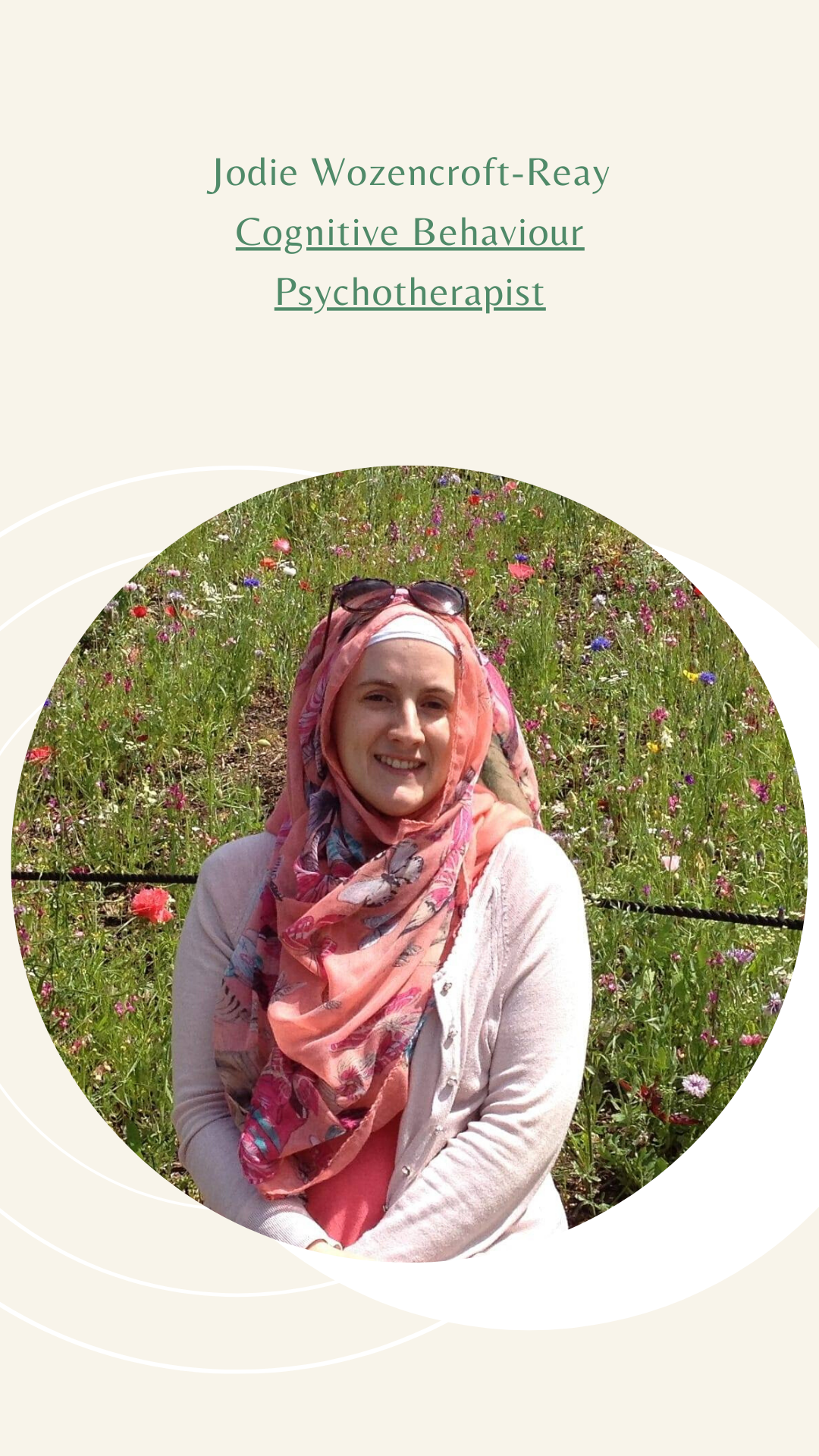Anxiety through an Islamic lens
- Jodie Wozencroft-Reay

- Mar 30, 2022
- 4 min read
Man was born anxious (Qur'an 70:19)
۞ إِنَّ ٱلْإِنسَـٰنَ خُلِقَ هَلُوعًا

The secular view
From a secular point of view anxiety is described as a “function of threat appraisal” which without jargon basically means anxiety has the role of alerting us to threat to keep us safe. This changes the way we think, feel and behave, with the aim of survival. This is great for crossing the road – we need to look before we step…but perhaps less useful for worries such as “what if I’m late to work?”, “What is my friends are judging me?”, or “what if I fail my exam next week?”

When is worry a problem?
Here are some signs that worry is becoming an issue:
- do you worry more days than not?
- does your worry feel uncontrollable?
- do you experience muscle tension or tension headaches?
- do you find yourself restless?
- are you often fatigued?
- are you irritable?
- do you find it difficult to fall asleep? Do you wake up earlier than you wish to?
- does worry impact your ability to focus or concentrate?
Why do we worry?
As humans, born with anxious brains and bodies, we try to protect ourselves from danger so that we can survive. The human brain is limited, so it equates uncertainty with danger. When worry is a problem, we become very sensitive to uncertainty, like a psychological allergy. The brain starts to scroll through all the "what ifs?"...and they are endless.
So how do we start to manage our worry more effectively? Well there's a few things we need to know.

Through an Islamic lens we know…
Shaytaan’s perspective, the perspective he wants us to have to distance us from Allah is that:
Allah does not provide and there is no hope
Allah overburdens us and nothing can help us
No wonder we feel hopeless when this is what is whispered to us. So how exactly can we balance out these whispers and lies?

Tawakkul
تَوَكُّل
Trusting in Allah subhanahu wa’tala and His plan is a beautiful protection from anything Shaytaan can throw at us.
If Shaytaan says Allah does not provide and there is no hope, we know we can answer:
…There is wisdom in every test Allah provides us and after hardship comes ease
If Shaytaan says Allah overburdens us and nothing can help us, we can find comfort in:
…Allah subhanahu wa’tala does not burden a soul with more than it can bear
“Allah does not charge a soul except [with that within] its capacity.” Qur’an 2:286
…we must tie our camels and trust in Him
Anas bin Malik narrated that a man said:
"O Messenger of Allah! Shall I tie it and rely(upon Allah), or leave it loose and rely(upon Allah)?" He said: "Tie it and rely(upon Allah)."
…and we must worship Him as He fully and completely deserves to be and turn to Him in dua
Your Lord has proclaimed, “Call upon Me, I will respond to you. Surely those who are too proud to worship Me will enter Hell, fully humbled.” Qur’an 40:60

Know your worries
There are different types of worries: hypothetical worries and real life worries.
Real life worries are worries or problems happening in the now, they're things we can do something about with problem solving.
Hypothetical worries are possibilities, what if's, uncertainties. The more we try to problem solve this type of worry, the more worries our mind creates.
Real life worries
If your worry is a "now" worry, something you can do something about, there a few ways you can develop your problem solving skills.
First write down the problem.
Second write down all the possible solutions (yes, even the silly ones)
Third consider which ones you could actually do - strike out the rest
Fourth look at pros and cons of the solutions left
Fifth - make your choice, stick with it whilst acknowledging your anxious human mind may well not like it very much
Hypothetical worries
You've identified this worry as a hypothetical worry - a possibility, a what if, or even just a feeling of uncertainty that you can't put into words. So how do we 'deal' with this worry? ...we don't! We need to change our focus because we know paying more attention to it leaves that door open for more Shaytaanic whispers because he's great at seeing our vulnerabilities.
There are a few ways you can learn to control your focus:
Use your senses
The next time you go for a walk in a park, simply focus on the colours you can see rather than the objects
Listen to the sounds around you, tuning into each in turn
Eat slowly, mindfully focusing on texture, taste, smell and sight of your food
Practice gratitude daily
Acknowledge 3 positive characteristics about yourself daily e.g. "Today I washed all of the dishes because I am motivated", "Today I learnt a new tajweed rule and put it into practice because I am intelligent"

We must aim to remind ourselves of the beautiful qualities and power of Allah subhanahu wa’tala, and always bring our hearts towards Him. Knowing that uncertainty is an illusion, everything is known by Him as He is the best of planners.
The wisdom of Allah subhanahu wa’tala, and trust we have in Him, are stronger than any worry and of any whisper we experience, because He tells us…
فَإِنَّ مَعَ ٱلْعُسْرِ يُسْرًا
“So, surely with hardship comes ease.” Qur’an 94:5




Comments